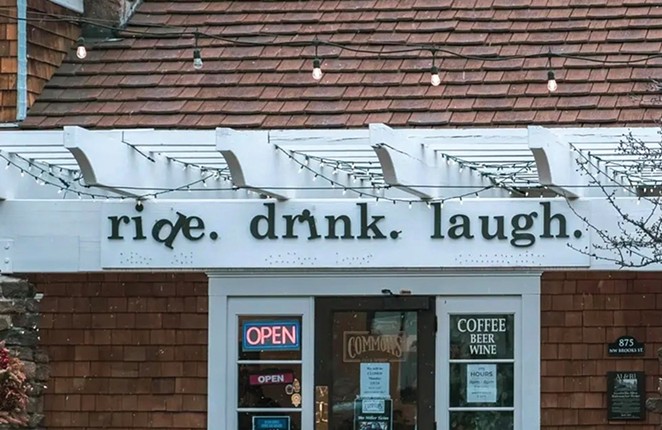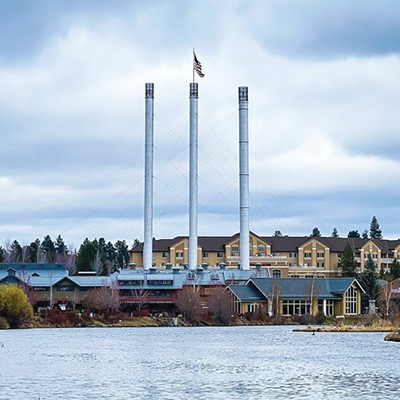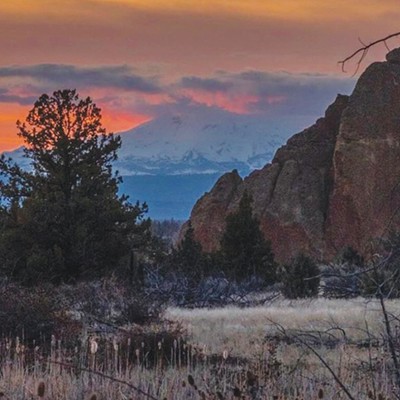
Guest Opinion: Why aren't we making our streets safer and more affordable?
The logic is simple: wide roads encourage speeding, and fast streets are unsafe for people in and outside of vehicles. Higher speeds give drivers less time to react, require more time for the vehicles to slow down or stop and increase risk of crash fatalities. But beyond these known dangers of high speed, wide roads pose another major problem: they are really expensive.
Streets that are expensive to build are a problem when we start to look at our current GO Bond transportation projects. The City of Bend has indicated that every upcoming project is likely to be over budget due to construction cost increases and the public's request for more elements in each project. However, this claim assumes the status quo of super wide streets, with the focus on allowing cars to move quickly through wide lanes.
Studies have shown that streets with 10-foot lanes experience significantly fewer accidents compared to their wider counterparts. Yet, our current street standards call for most vehicle lanes to be built 11 feet wide, nearly twice the width of the average car. One foot for each lane may not seem significant, but when accounting for both sides of the street, that represents a 10% increase for a two-lane road. That means 10% more pavement to build, 10% more to maintain and 10% less space for greenery or living, all to build a street that is less safe. As an example, Highway 20 from Bend to Sisters is 33 feet wide, while SE 15th Street in Bend is 40 feet wide when including its painted bike lanes. Without barrier protection for bike lanes, the width of pavement in both cases indicates that highway speeds are possible. Why are our street standards normalizing construction of highway-level streets in town when streets could be built narrower, safer, and at lower cost to taxpayers?
Looking further: building is one expense, but another is maintenance. Maintaining wide streets costs more than maintaining narrower streets. There is the cost of repaving worn down asphalt, snow plowing, accounting for stormwater... Building wide streets and then pouring money into maintaining them is an unsustainable cycle that perpetuates our unsafe system.
But, it's not just about the numbers. Narrower streets mean more room for things like trees and green spaces, bike lanes, wider sidewalks and even public plazas. These additions improve our quality of life by making our cities more walkable, bikeable and livable. Businesses thrive in these pedestrian-friendly environments, boosting local economies and fostering a sense of community.
We need our street standards to reflect what we want to see in our community: narrower streets built for people at a cost that we can afford. This year, the City of Bend will be updating their street standards. This will be a critical time for the City to hear from the community about the need to narrow our streets to make them safer and more affordable. To get involved, contact Bend Bikes at [email protected].
—Elisa Cheng, board president of Bend Bikes
Pacific Power
It is shameful that the Oregon Public Utility Commission gave Pacific Power/PacifiCorp the right to increase residential customer rates by 12.9%, small commercial/business customers by 12.1& and 16.7% for large commercial/industrial customers. They claim that they need to increase their rates due to volatility in the electric Western market, wildfire mitigation and rising power costs. Now some of those claims, I believe to be true. But if they have been spending their profits appropriately and putting it back into their business and the maintenance of their equipment instead of raising salaries of their managers/CEOs, and making sure their shareholders are turning a profit, we may have not seen the Archie Creek Fire 2020 blow up to the extent that it did. We have also seen this lack of accountability and responsibility of upper management in the Camp Fire with PG&E Electric and just this past summer, Hawaiian Electric Company admitted that the downed power lines caused the "morning fire." Now whether the "afternoon fire" would have decimated Lahaina town without all the overgrown vegetation, we will never know. But I do know that I am tired of corporations and the people that run the corporations, not being held accountable for their decision making. Passing the costs down to their customers and/or claiming bankruptcy seems to be a way of escaping liability. IF corporations are considered people, where is their accountability??
—Laura Pea
Book Bans Hurt Our Youth
Under the guise of "Parents Rights" books are being banned across the county ostensibly because our library boards are failing to keep adult themes or content out of the hands of children. A couple of years ago when this hysteria began to fully develop into the culture war that it is today, I began to gather and read any banned book I could get my hands on. My goal was to answer the question: What is it about this book that warrants removal from our public libraries? "To Kill a Mockingbird," "The Bluest Eye," "The Hate U Give" and "The 1619 Project" are all books being banned or otherwise sequestered away from potential readers and in my opinion, we parents do a disservice to our youth when we take their freedom away to explore literature.
If a child wants to read a book it is not our job to say no. It is our job as parents to let them read and then answer or explain anything they ask about. If the content of a book is too adult or has subject matter they do not understand, they will likely lose interest and move on to another book. But to take away their freedom to explore the literary world through the words of great authors is just plain wrong. If you do not want your child to read certain books that's "your parental right." Those rights end where my child is concerned.
—Barbara Johnson
Letter of the Week:
Barbara: Agreed! This is happening right in our own community, and parents in places like Crook County would do well to share their thoughts with their local school and library boards. Even school boards could use a healthy dose of diverse reading!
—Nicole Vulcan



















